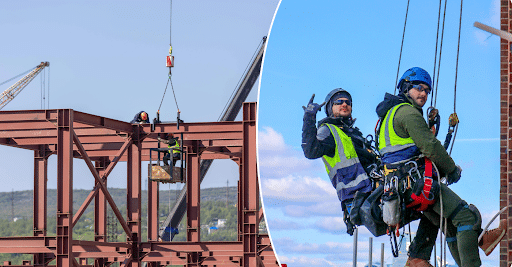If you’re a contractor, then you’re probably all too familiar with the current construction labor shortage. What you may not be aware of, however, are the legal consequences that come along with this shortage. From OSHA violations to wage disputes, there are a number of potential pitfalls that contractors need to be aware of.
The construction industry will need approximately 1,000,000 workers by 2023 to handle the workload. About 40 percent of all construction workers are expected to leave the workforce in the next 10 years. Although close to 70 percent of workers have returned since the beginning of the pandemic, there still remains a huge shortage.
It seems that advertising for help cannot fuel hiring as it once did nor replace the workers who left. Increasing benefits and wages might spur new hires to sign up. Contractors with money woes of their own may not be able to increase wages.
Table of Contents
OSHA Violations
One of the most common legal consequences of the construction labor shortage is an increased risk of OSHA violations. With fewer workers on the job, it’s more likely that corners will be cut and safety procedures will be ignored.
This puts workers at risk of serious injuries, and it also puts contractors at risk of hefty fines from OSHA and lawsuits. To avoid these consequences, make sure that you’re always following all safety protocols and that you have enough workers on site to get the job done safely.
Increased Accidents on the Job
Another consequence of a construction labor shortage is that it could increase work accidents on the job site. This is because there are simply not enough workers to properly supervise all the activities taking place. When this happens, it puts both the workers and the contractor at risk of being held liable in the event of an accident.
Wage Disputes
Another potential consequence of the construction labor shortage is an increase in wage disputes and wage theft. With so few workers available, wages have been on the rise in recent years. This has led to some contractors promising workers one wage only to later try to lower their salary after they’ve already started working.
This is not only unethical, but it’s also illegal. If you find yourself in a situation where you can’t afford to pay your workers what you promised, it’s better to let them go and hire someone else than to try to change the terms after they’ve already started working.
Fewer workers mean increased competition for the available ones, which can drive up wages. In some cases, it may even mean that contractors have to turn down work because they don’t have enough employees to complete the job.
A construction labor shortage can also lead to delays in completing a project. This can end up costing the contractor both time and money as they try to play catch-up. In some cases, the delays may even cause them to lose out on future projects as clients move on to someone who can get the job done in a timely manner.
Unlicensed Contractors
In some states, it’s illegal to operate as a contractor without a license. However, due to the current construction labor shortage, many contractors are tempted to operate without a license in order to get their projects completed on time.
This is a risky proposition, as operating without a license can lead to heavy fines and even jail time in some cases. If you’re thinking about operating without a license, we strongly advise against it. The risks simply aren’t worth it.
Work-Related Injuries
Workers who have been injured on the job should ensure that the rights they have under workers’ compensation are intact.
In addition to that, if a worker was hurt due to a negligent third party or defective equipment, they should obtain the legal advice of an attorney. In both situations, the worker can generally go outside of the workers’ compensation system and file a lawsuit against the business or contractor.
Loss of Skilled Mentors
Training was a common tool for skilled labor, particularly for those in the construction industry. If training cannot be offered, it increases the risk of injuries on the job.
An even more insidious problem is the lack of skilled workers to hand down the intricacies of their craft to younger ones. With this lacking, contractors must institute training programs, although, with construction delays, this option might be unavailable.
Seeking Legal Advice
The current construction labor shortage is posing a number of legal challenges for contractors nationwide. There are several potential consequences that need to be avoided. By being aware of these challenges and taking steps to avoid them, you can protect your business from legal trouble during this difficult time.





